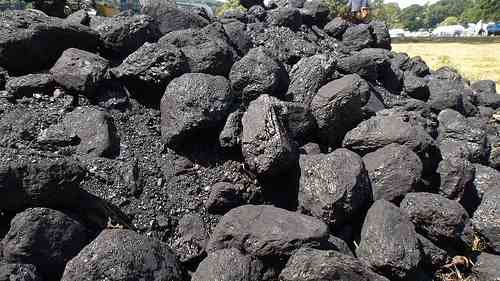

Energy
Coal-fired electricity investment threatens climate goals, warns OECD head
Angel Gurria, secretary general of the OECD, has called on governments to rethink the role of coal in energy supply, arguing the scale of investment being made in coal-fired electricity generation poses the “most urgent threat” to our climate.
While Gurria noted that coal might be cheaper than other energy sources he warned that governments are not factoring in long-term costs and impacts. The OECD also points out that if climate change targets are to be met many of the coal plants being built today may have to be shut down before the end of their economic lifetimes.
Speaking at a lecture hosted by the London School of Economics and Aviva Investors, Gurria said, “Coal is not cheap. Or at least, it is only cheaper if you ignore all the costs it imposes. It causes a number of environmental problems including significant land disturbance, contamination of water sources, air pollution, damage to ecosystems, and dust and noise pollution.
“Governments need to be seriously sceptical about whether coal provides a good deal for their citizens.”
If low-carbon alternatives are not affordable for some developing countries Gurria called on donor countries to mobilise finance to close the financial gap.
OECD data shows that coal burnt for electricity doubled between 1990 and 2013. Without new mitigation measures, coal generation is projected to emit more than 500 billion tonnes of carbon dioxide between now and 2050, which would eat up around half of the remaining carbon budget consistent with limiting global warming to 2C.
During his speech Gurria also stated that countries’ contributions to emissions reductions post-2020 are not consistent with meeting the 2C target. The comments come ahead of the COP21 UN summit, where it is hoped an ambitious climate change treaty can be agreed. However, Gurria called on governments to go further in order to ensure success.
He commented, “The mitigation contributions currently tabled by countries do not get us to where we need to be by 2030. Calling something a process doesn’t guarantee an outcome. We have been in a process for over 20 years and so far the commitments simply don’t add up.”
Photo: oatsy40 via Flickr
Further reading:
Study: majority of fossil fuel reserves must remain unburnt
US coal decline a warning for fossil fuel investors, says Carbon Tracker
UK among G7 countries that have increased coal use
‘Underestimated’ coal emissions rising 4% per year – study
University of Edinburgh recommended to divest from coal and tar sands


 Environment12 months ago
Environment12 months agoAre Polymer Banknotes: an Eco-Friendly Trend or a Groundswell?

 Features11 months ago
Features11 months agoEco-Friendly Cryptocurrencies: Sustainable Investment Choices

 Features12 months ago
Features12 months agoEco-Friendly Crypto Traders Must Find the Right Exchange

 Energy11 months ago
Energy11 months agoThe Growing Role of Solar Panels in Ireland’s Energy Future





























